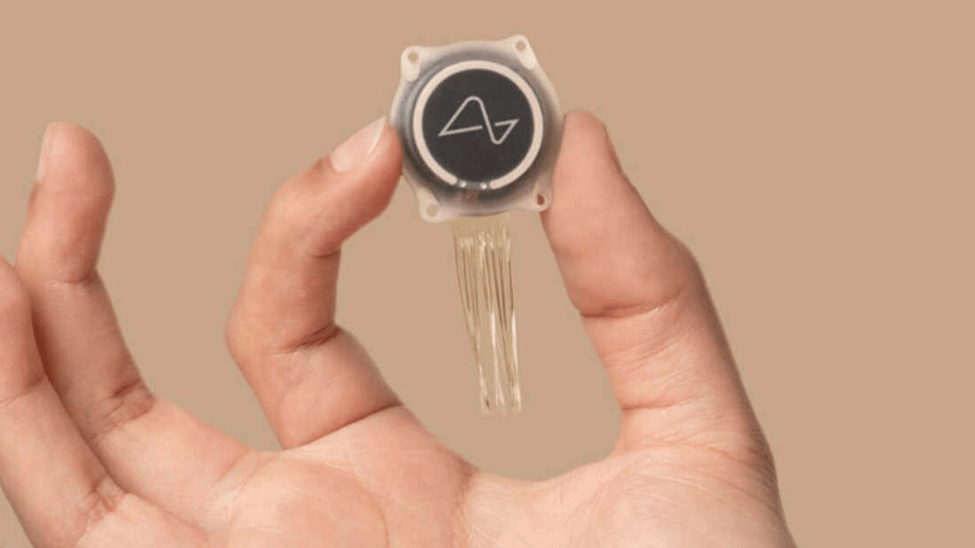- lunch with AI (Health with AI tec)
- Posts
- OpenAI's collaboration with nonprofit Common Sense Media
OpenAI's collaboration with nonprofit Common Sense Media
Human trail begins (Neuralink)

What are our lunch choices today? Pick your favored bitesize AI and Robotics information for the day.
S&P500 | 4,906.19+60.54 (1.25%) Closed: Feb 1 |
Tesla inc. (TLSA) | 188.86 USD+1.57 (0.84%)Closed: Feb 1 |
Microsoft (MSFT) | 403.78 USD+6.20 (1.56%)Closed: Feb 1, |
NVIDIA Corp | 630.27 USD+15.00 (2.44%)Closed: Feb 1 |
AI companies lose $190 billion in market cap after Alphabet and Microsoft report. they are all pushing forward but not showing much profit as of yet.
APPETIZER: Money matters
The world is changing fast and the money is flowing fast to AI sectors
1) Bret Taylor, the chairman of OpenAI, a nonprofit research company focused on developing friendly (?) artificial intelligence. He is also the co-founder and CEO of Sierra, an enterprise-focused AI startup. In January 2024, Sierra reportedly raised $85 million in a funding round, valuing the company at nearly $1 billion.
2) Vitalik Buterin, the mastermind behind Ethereum, recently shared his thoughts on the potential synergy between cryptocurrency and AI. In his blog post, he discussed four ways AI could be integrated into the crypto world
Buterin also highlighted the challenges and risks of integrating AI into the crypto ecosystem, such as ensuring security, transparency, and user trust. Despite these challenges, he believes that the potential benefits of combining AI and crypto are enormous, and could lead to a more efficient, secure, and decentralized financial system.
A Little Salad: health
Cyborgs are here!! Ready or not, It seems that Elon Musk's Neuralink successfully implanted its first brain chip in a human patient on Sunday, and the patient is recovering well. Initial results show promising neuron spike detection. This is a significant step in the field of neuroscience and technology, as Neuralink aims to create brain-computer interfaces that could help people with paralysis and other neurological conditions.
It's exciting to see such progress being made, and it will be interesting to follow the developments and potential benefits that this technology could bring to people in the future.
This has incredible potential, but what about the flip side? Computers are hacked all the time. Will it be possible to hack a person’s mind? How often do we hear about a new security breach, and you find yourself worrying about your SS number, bank accounts, and charge cards? Now, will your random thoughts be available online? Think about that for a moment. For now wishing the best for the recipient of the first Neuralink.
#Neuralink
Medical Knowledge
Illinois and Google AI are becoming partners for children’s behavioral health services. Lets see how fast AI becomes a large part of our health system. We will know soon if this benefits children the way they claim
In a world where artificial intelligence (AI) is rapidly evolving, the recent announcement of OpenAI's collaboration with nonprofit Common Sense Media has sparked a wave of skepticism among experts and observers in the field. The partnership aims to develop AI guidelines and educational materials for parents, educators, and teens, but many question the true intentions and potential impact of this collaboration.
On one hand, the partnership could be seen as a positive step towards promoting responsible AI usage, especially among younger generations. It may help educate and inform users about the potential risks and benefits of AI technology, as well as provide guidance on how to use it safely and ethically.
However, this collaboration may be more of a public relations move than a genuine effort to address the complex ethical issues surrounding AI. Some are concerned that the partnership could be used to downplay the potential risks and negative consequences of AI, such as job displacement and privacy concerns.
Furthermore, the choice of Common Sense Media as a partner has raised eyebrows. The organization has faced criticism in the past for its rating system, which some argue is too simplistic and does not adequately address the nuances and complexities of AI technology. There are also concerns that the collaboration could lead to a "one-size-fits-all" approach to AI education, which may not be appropriate for all users and could limit the development of critical thinking skills.
While OpenAI's partnership with Common Sense Media has the potential to be a positive step towards promoting responsible AI usage, I believe it is important to approach the collaboration with a healthy dose of skepticism. It remains to be seen whether the partnership will truly address the complex ethical issues surrounding AI or if it will simply serve as a public relations move to deflect criticism. Not to mention that Both OpenAI and Common Sense Media have their own agendas and priorities, which will influence the direction and outcomes of the partnership. .
Government/laws

Fcc takes steps to Make AI-generated robocalls Illegal
In a move to combat increasingly deceptive robocalls, the FCC is pushing to classify AI-generated voices as "artificial" under existing laws. This aims to make calls using this technology illegal, particularly those targeting consumers with scams and misinformation. The proposal leverages the Telephone Consumer Protection Act, adding AI-powered calls to the existing restrictions on unsolicited automated messages. This decision comes after recent incidents where AI voices impersonated politicians, potentially swaying voters, highlighting the urgency to address this emerging threat. While the final ruling is pending, this step signifies the FCC's desire to have control over AI-generated voices and what they believe to be misinformation. #AI
Dessert: Prosthetic’s/Robotics
Robot Mimics Human Walking
Not an easy thing but robots are improving fast and their abilities to walk like humans. (not like an Egyptian LOL) is very impressive. To learn more, click here.
Learning to walk again
Beth Wyatt, a survivor of a multi-vehicle car crash that led to the amputation of both her legs, is featured in this YouTube video update. Fifteen months after the tragedy, Beth is determined to regain her independence and learn to stand and walk using advanced prosthetic legs with the help of therapists Sarah Bunning and Meredith McKelvie. Their guidance focuses on Beth's mobility, balance, and everyday life skills. Beth's mental fortitude and motivation are acknowledged for her inspiring progress, as she sets her sights on walking unassisted around her house.
Disclaimer: None of the information here is financial advice. This newsletter is for informational purposes only and not to be used as investment advice or a solicitation to buy or sell any assets. Any and all financial decisions you make should be carefully researched on your own or discussed with a financial advisor.


Reply